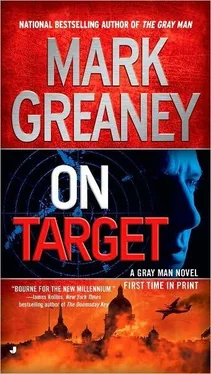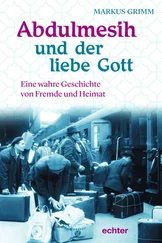Mark Greaney - On target
Здесь есть возможность читать онлайн «Mark Greaney - On target» весь текст электронной книги совершенно бесплатно (целиком полную версию без сокращений). В некоторых случаях можно слушать аудио, скачать через торрент в формате fb2 и присутствует краткое содержание. Жанр: Триллер, на английском языке. Описание произведения, (предисловие) а так же отзывы посетителей доступны на портале библиотеки ЛибКат.
- Название:On target
- Автор:
- Жанр:
- Год:неизвестен
- ISBN:нет данных
- Рейтинг книги:3 / 5. Голосов: 1
-
Избранное:Добавить в избранное
- Отзывы:
-
Ваша оценка:
- 60
- 1
- 2
- 3
- 4
- 5
On target: краткое содержание, описание и аннотация
Предлагаем к чтению аннотацию, описание, краткое содержание или предисловие (зависит от того, что написал сам автор книги «On target»). Если вы не нашли необходимую информацию о книге — напишите в комментариях, мы постараемся отыскать её.
On target — читать онлайн бесплатно полную книгу (весь текст) целиком
Ниже представлен текст книги, разбитый по страницам. Система сохранения места последней прочитанной страницы, позволяет с удобством читать онлайн бесплатно книгу «On target», без необходимости каждый раз заново искать на чём Вы остановились. Поставьте закладку, и сможете в любой момент перейти на страницу, на которой закончили чтение.
Интервал:
Закладка:
But in all his trips along this poor excuse for a road, he'd never run into any English-speaking white Westerners on foot.
What madness.
Mario Bianchi enjoyed an impeccable reputation in the relief agency industry. He'd cultivated this in his forty-year career working all over the African continent. The Italian was known as the man who could get the job done, deftly negotiating not only minefields in the literal sense but also the minefields of street-level diplomacy. No matter who he was working for or where, his convoys got through, his aid camps got built, his clinics got supplied, and his staff got paid. He did this all without discernible trouble from the local heavies. It seemed nothing less than a miracle, considering where he had been and what he had done, but somehow the marauding ADFL rebels of Laurent Kabila passed him by, the RUF maniacs in Sierra Leone did not harass his efforts to evacuate civilians from their territory, even the teenage Liberian gang, the West Side Boys, who essentially slaughtered most anyone they saw just for shits and grins, pretty much let him do his thing in areas where they held control.
He won award after award all over the First World. Hardly a season of any year went by that did not see Mario Bianchi in a tuxedo walking across a floor-lit stage to civilized but energetic applause by the elite, themselves in tuxedos and evening gowns. His successes had piled up over the years before Darfur, and the atrocities of Darfur called to Signor Mario Bianchi the way a flame calls to a moth.
Here in Darfur his reputation had reached near mythical proportions. Somehow, when the UN wouldn't dare run convoys without escorts, when private relief concerns were hunkered down in Khartoum, too bloodied and battered by the indiscriminate slaughter of Darfur to actually go to Darfur to work, Speranza Internazionale convoys continued in the region; their IDP camps and clinics and warehouses and water stations remained in operation. Of course, there were sporadic raids by the Janjaweed and even the local rebels, but they were a small fraction of what any other group had experienced in the region when they dared open up shop in the Land of the Fur.
It was thought Bianchi's successes were a result of his powerful personality, that he had somehow been able to cajole the devils of Africa for decades to permit his organization's coexistence.
But that was not it at all. Bianchi was, behind the false veneer of do-gooder naivete, in truth, a deeply cynical man. A half century in Africa would do that to anyone, but the manifestation of his cynicism was a cold, brutal, realpolitik that, most would agree, had no place in the world of relief organizations.
The truth of Mario Bianchi's success stemmed from one simple, common act.
Mario paid bribes.
Big bribes.
To everyone.
The West Side Boys in Liberia did not hassle his local operation because he paid them tens of thousands of dollars to let him work. Surely if the well-intentioned Americans and Europeans who donated money to his organization knew that a major portion of their tax-deductible donations was immediately converted into baksheesh that fourteen-year-old Liberian gunmen used to buy ganja, bullets, and porno tapes, the spigot of privately donated aid would be shut off instantly. If these same donors had a clue that after the Congolese death squads took payments for access from Speranza Internazionale, they immediately demanded payment from all NGOs working in their area of influence, and when the principled among them refused to contribute, they were targeted and butchered, thereby leaving SI as virtually the only relief agency in eastern Congo, well, they could be forgiven for feeling somewhat sullied by their well-intentioned funding of butchery.
And here in Darfur, it continued. American film stars created advertisements at the SI camps, money poured in, and the money went, in no small part, to the Janjaweed killers who roamed north Darfur and raped and killed and burned, did so on the backs of the best camels from Chad, with the best AK-47s from Egypt, communicated with the best satellite phones from Japan, all paid for with American and European money.
Bianchi justified it easily. He was here, and he was working. He did what he had to do, and who the hell were you to judge him from your armchair while he was swatting flies out of his nose in forty-degree Celsius heat on a dirt road in the center of hell?
And now his cynicism applied to his present situation. Two American journalists alone, out here in the Sahel? If he were honest with himself, he would admit that he now wished he'd ordered his drivers to continue on, to leave the white woman by the side of the road. Freelance reporters operating without GOS minders in Darfur were serous troublemakers, as far as Bianchi's operation was concerned. He had to work with the leaders of the Sudan-rat bastards one and all-not against them. Even picking up this woman, taking her to Dirra, was dangerous to his organization. If the GOS somehow found out what he had done, he'd little doubt there would be repercussions from Khartoum that could hurt the flow of aid to his camps. Sure, he could bribe his way out of it, but the economic downturn in the First World had affected donations, and there was only so much in bribes that he could dole out in this economy.
Bianchi saw the white man ahead.
"Where is his camera? You said he was a photographer."
"He is. Like I said, robbers stole our car last night. Everything was in it. We've been out here for hours waiting for the right people to come along."
"You are twenty-five kilometers outside Al Fashir," he told her.
"Hey, don't look at me, I wasn't driving."
Mario did not doubt the woman. Highway bandits worked the road between Al Fashir and Dirra. In the rainy season, when the roads were slow and breakdowns were common, SI tried to travel with an UNAMID armed escort whenever possible, since it was impossible to bribe every Darfuri farmer or herder with an AK. But this time of year they could, more or less, race on by most any small group of men bent on doing them harm.
Except for the Janjaweed, whom he paid well so that they would leave his convoys alone.
The Italian was just a few steps from the American man now, the lone white talking to some of SI's African drivers and freight loaders who'd left their vehicles to smoke by the side of the road. The American did not have any equipment with him, not even a pack on his back. He wore a sweat-stained brown T-shirt and some sort of local black pants. His T-shirt rode up on his back when he turned.
The man was bearded and tan, and grime from the Sahel covered the parts of his face that the beard did not. He spoke in French to the locals. French was not uncommon here, as it was a common language in Chad, and Chad was just one hundred miles to the west.
The American was facing the opposite direction. When he reached to shake the hand of another of his employees, a young Darfuri loader, Mario saw the butt of a pistol on his right hip.
The Italian relief coordinator's mouth dropped wide. He could not believe this man dared to carry a gun. An American cowboy! And he expected to just jump on one of the Speranza Internazionale trucks and get a ride out of here to safety? He would bring nothing but danger with that instrument of evil tucked so cavalierly in his drawstring pants.
Without a word to the American, Mario Bianchi angrily walked up behind him and reached out to disarm him.
And that, as it turned out, proved to be an extremely bad idea.
TWENTY-THREE
Putting one's hand on the personal weapon of a man with Gentry's training and disposition might not have been quite as dangerous as sticking one's arm in a rusty bear trap, but it was damn close. As soon as Court felt the pressure, long before Mario's fingers had fully wrapped around the grip, and way before he'd begun to tug the gun out of his pants, the American assassin spun towards the threat, used the momentum in his turning torso to sweep his right arm back up with incredible power and speed, knocked the arm of the threat up and away from his gun. His turn continued, and with his left hand shooting across his body, he reached in front of the threat's face, swept his left leg out behind his threat's legs, and slammed his left hand back hard under the threat's chin. This sent the man reeling backwards, over the leg behind him, falling onto his back and into the cloud of dust kicked up by Gentry's flurry of movement.
Читать дальшеИнтервал:
Закладка:
Похожие книги на «On target»
Представляем Вашему вниманию похожие книги на «On target» списком для выбора. Мы отобрали схожую по названию и смыслу литературу в надежде предоставить читателям больше вариантов отыскать новые, интересные, ещё непрочитанные произведения.
Обсуждение, отзывы о книге «On target» и просто собственные мнения читателей. Оставьте ваши комментарии, напишите, что Вы думаете о произведении, его смысле или главных героях. Укажите что конкретно понравилось, а что нет, и почему Вы так считаете.












